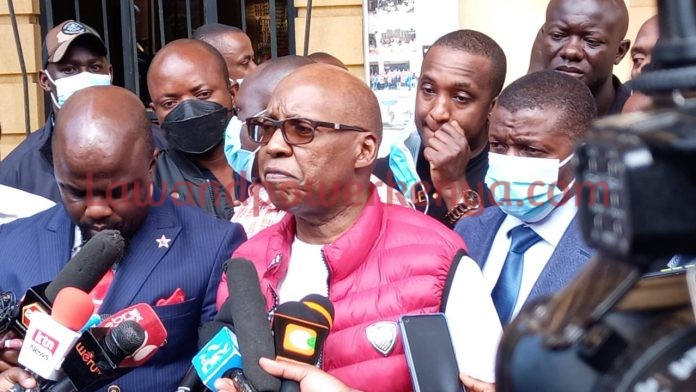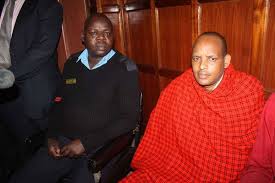The court of appeal has dismissed a case by businessman Jimmy Wanjigi seeking to be included as a presidential candidate in the August 9 elections.
Judges Asike Makhandia, Kathurima M’inoti and Hellen Omondi ruled that the appeal had no merit and dismissed it with costs.
Wanjigi had presented himself to the Independent Electoral and Boundaries Commission (IEBC) on 6th June 2022 to present his papers for nomination.
However, after examining the documents in support of his registration, IEBC Chairperson Wafula Chebukati ruled that Jimmy Wanjigi was not qualified to be nominated to run in the presidential election and rejected his candidature.
Wanjigi argued that the decision by Chebukati was unfair, irrational, an illegality, unreasonable and bias.
Conflict of interest
The appellant also claimed that there was conflict of interest due to the fact that the Chairperson of the IEBC dispute resolution committee had acted as the private advocate of the Chebukati in a different matter.
However, the appellate judges found that Wanjigi did not tender any material to persuade the court on the same.
“Other than the bland assertion that the chairperson of the 3rd respondent was biased because he had acted as an advocate for the 1st respondent (Chebukati), the appellant has not placed any material that would persuade us that a reasonable, well-informed and fair-minded person would conclude, merely from having acted for the 1st respondent in a matter, that the chairperson of the 3rd respondent would be biased against the appellant,” ruled the judges.
According to the judges, the bias that Wanjigi apprehended is based on the fact that the chairperson of the 3rd respondent, in his capacity as an advocate had acted for the 1st respondent.
“Unfortunately, other than stating that it was in a miscellaneous application, the appellant did not give any details about the nature or character of the dispute,” the court ruled.
The Court of Appeal ruled that reasonable likelihood has to be demonstrated and is not satisfied by mere suspicion. The onus of demonstrating reasonable likelihood of bias is on the appellant and as the Supreme Court of Canada noted, the threshold is high.
“For all the foregoing reasons we found that the appellant’s appeal had no merit and dismissed the same with costs to the respondents,” the judges ruled.










